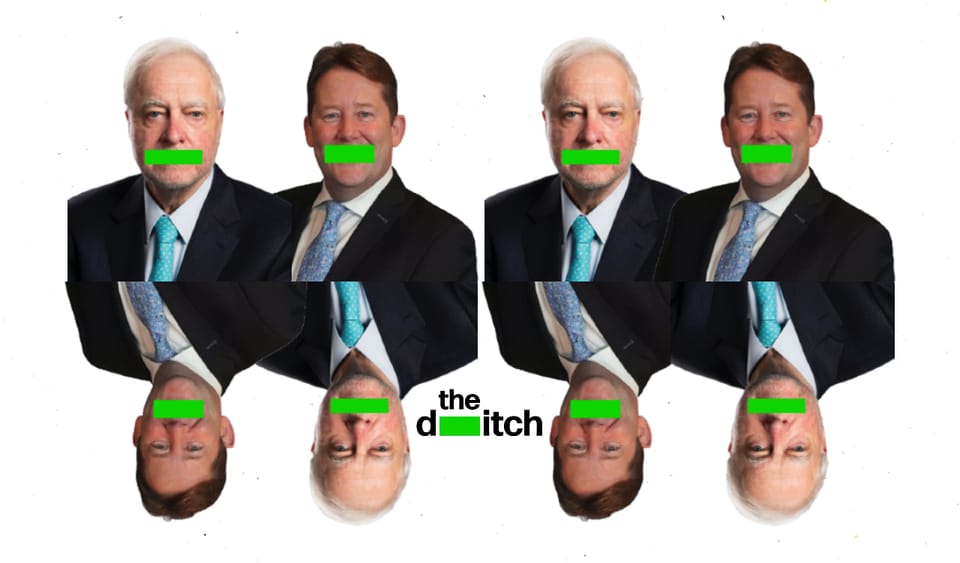The attorney general in private correspondence on government’s mica scheme suggested measures to reduce the number of applicants, limit the state’s financial exposure and help ensure claims were kept as low as possible. He wrote it would be imperative to ensure applicants could only avail of “the least costly option”.
Attorney general Paul Gallagher advised that the government scheme to compensate those affected by the mica crisis would “lead to significant abuses” from homeowners applying.
Gallagher – whose property portfolio is worth about €8.5 million – warned housing minister Darragh O’Brien, “Any applicant will pitch his/her claim on the most generous basis that can be credibly advanced.”
He also advised against the usage of certain words. “It is important to avoid use of terms like ‘compensation’ or ‘redress,’” he wrote.
The Mica Action Group in a statement to the Dáil’s Housing Committee in February this year said “government has deliberately hoodwinked most of their fellow citizens” with its mica scheme.
“This scheme does not provide for 100 percent redress,” adding, “Donegal is amongst the most economically disadvantaged counties nationwide, yet homeowners are expected to pay thousands in upfront costs that can only be recouped retrospectively. The necessity to have thousands of euros readily available financially paralyses homeowners, leaving them unable to rebuild their homes,” read the statement.
Just 61 homes have been fully remediated under the scheme, which has been in place for four years, with only €44 million spent.
‘Any applicant will pitch his/her claim on the most generous basis that can be credibly advanced’
On 7 September, 2021 then attorney general Paul Gallagher wrote to housing minister Darragh O’Brien after a meeting between officials from the pair’s respective offices. In the letter Gallagher wrote “it may be helpful if I identify some of the issues which we discussed” during the meeting concerning the terms of government’s mica scheme.
Gallagher noted, “There is considerable pressure to extend the scheme by providing for more generous payments and extending its scope.”
Gallagher thought this risked encouraging more people to apply. “If the scheme is made more generous than at present, it is also likely to increase the number of applicants,” he wrote.
In December 2021 government announced an adapted version of the scheme already in place, which would now allow for 100 percent of repair costs up to a cap of €420,000.
Gallagher had advised on the need for a cap in the letter to O’Brien. “In financial terms it will be extremely difficult to control the cost of the scheme based on 100 percent reimbursement, particularly if there are no caps on such payment,” wrote Gallagher.
Though Gallagher thought a cap would help control the cost of the scheme, he also warned that it might lead to the inflation of some claims.
“The very identification of a cap will also encourage claims to be presented at that outer limit instead of on the basis of figures more realistically reflecting the actual cost. While a cap has significant merit and is perhaps absolutely necessary it must be appreciated that it also has the potential, given the amount of claims, to result in the inflation of many claims,” he wrote.
Gallagher was also concerned that affected homeowners would try to improve their homes rather than just have them rebuilt.
“As I understand it the present standard is intended to provide that grant payments be calculated on the basis of the building standards applicable at the time the house was built and not by reference to present day standards. This is intended to avoid payment for improvements. It will however be difficult to effectively apply this standard because costs will be presumably presented purportedly with reference to the as built cost but in reality covering all or part of the remedial cost by reference to present day standards,” he wrote.
Gallagher wrote of what he considered the need to ensure affected homeowners didn’t better their properties “in some implicit way”.
“It is not apparent to me what mechanisms are in place to ensure the correct standard is applied and that these betterment costs are not claimed in some implicit way. This is also a fundamental issue with significant financial implications, irrespective of whether the scheme involves a grant payment or is based on 100 percent of the cost.
According to Gallagher applicants would seek as much money as possible.
“Any applicant will pitch his/her claim on the most generous basis that can be credibly advanced,” he wrote.
‘The least costly option’
Gallagher also warned that applicants to the scheme would be incentivised to seek a demolition and rebuild of their homes, having seen others do likewise.
“Furthermore, as night follows day, if a significant number of homeowners are being recompensed on a demolition basis, it is inconceivable this will not encourage most other homeowners to submit claims on that basis,” he wrote.
The attorney general suggested that applicants would pressurise engineers into applying for this remedy.
“There is the added complication that many of the engineers, engaged by the homeowners, preparing reports for submission to the local authorities may not have the required degree of expertise to confidently recommend anything less than full demolition and rebuild. Furthermore, these engineers are likely to be pressurised by their clients to submit claims on that basis and it would be difficult for them to resist doing so,” he wrote.
Keeping costs down was to be imperative for Gallagher.
“As previously advised it is going to be essential to lay down stringent conditions which must be fulfilled by every applicant in order to obtain payment on the basis of any option other than the least costly option,” he wrote.
The Department of Housing has been contacted for comment.


